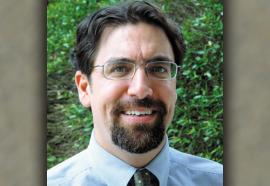Playing Russian Roulette
Moscow's ratification of the Kyoto protocol could pose problems for the United States.
It could mark the biggest bungle of the last two administrations: the decision to walk away from the Kyoto Protocol rather than stay and negotiate to U.S. advantage. No one thought Russia would sign and put the treaty in force. But now that Russia's ratification appears imminent, policy wonks in America are scrambling to assess the impact.











